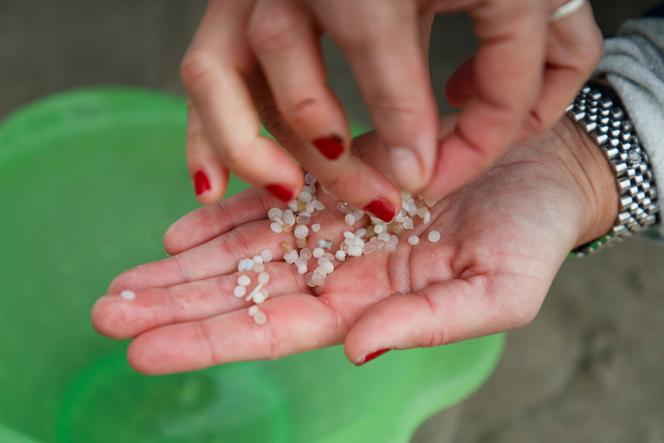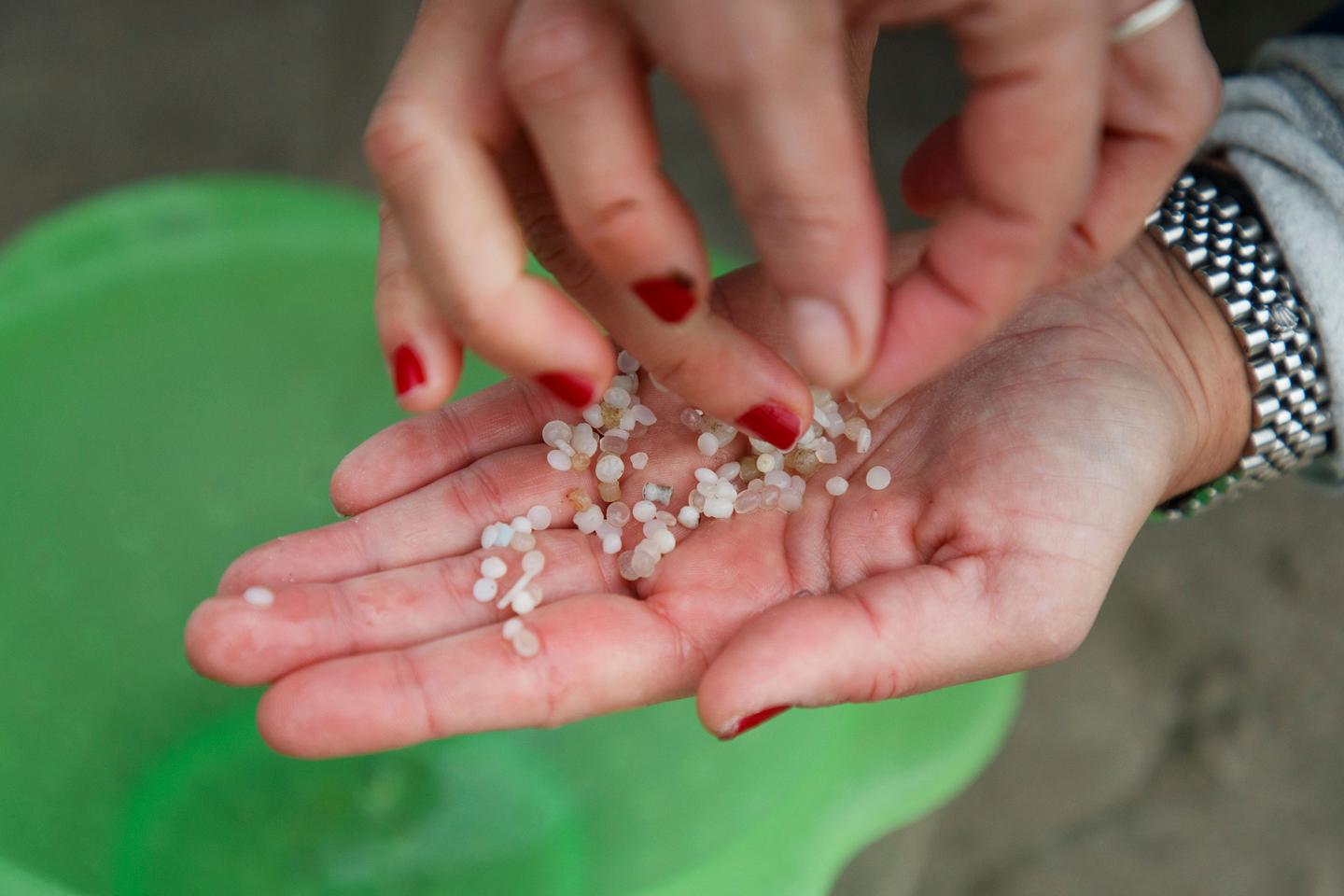 A volunteer shows plastic pellets collected from a beach in Nigran, Spain, on January 9, 2024. LALO R. VILLAR / AP
A volunteer shows plastic pellets collected from a beach in Nigran, Spain, on January 9, 2024. LALO R. VILLAR / AP
The European Parliament on Thursday, October 23, definitively adopted rules clamping down on pollution from the tiny pellets that constitute the building blocks of most plastic products. The text introduces new rules to hold handling and transport firms accountable for spills of the lentil-sized pellets, called nurdles, which are used in everything from car bumpers to salad bowls.
Read more Subscribers only Microplastics: The invisible but massive pollution flowing through every major European river
The proposal was approved without a vote after being backed by a wide majority in the parliament’s environment committee earlier this week. Made from fossil fuels, plastic pellets often spill into the environment, polluting beaches and oceans.
According to European Commission data, up to 180,000 tonnes of pellets per year – the equivalent of 20 truckloads each day – are dispersed into nature across the 27-nation bloc due to mishandling.
Transport companies will have to act quickly to report and contain pellet leaks and handle the clean-up if necessary. And they will have to provide an estimate, within 30 days, of the amount of microplastics spilled into the environment.
‘Holding them responsible’
“These rules mean they can no longer say, ‘It wasn’t me,” said the socialist lawmaker César Luena, who shepherded the legislation through the parliament. “We are holding them responsible – it is up to them to alert the authorities.”
Land freight companies will have two years to comply, with three years for maritime freight, which faces specific new obligations despite a push from some EU countries for it to be excluded from the legislation. The rules will require freight companies to ensure packaging of sufficient quality, and to clearly label cargo as containing microplastics.
Read more Subscribers only Microplastic pollution found to be widespread in French soils
The rules will apply to all companies transporting more than 5 tonnes of microplastics per year within the EU, whether or not the firms are European. ‘And all firms involved in the manufacture, transport or transformation of pellets will have to carry out risk assessments to prevent spills and clean up if they occur.

